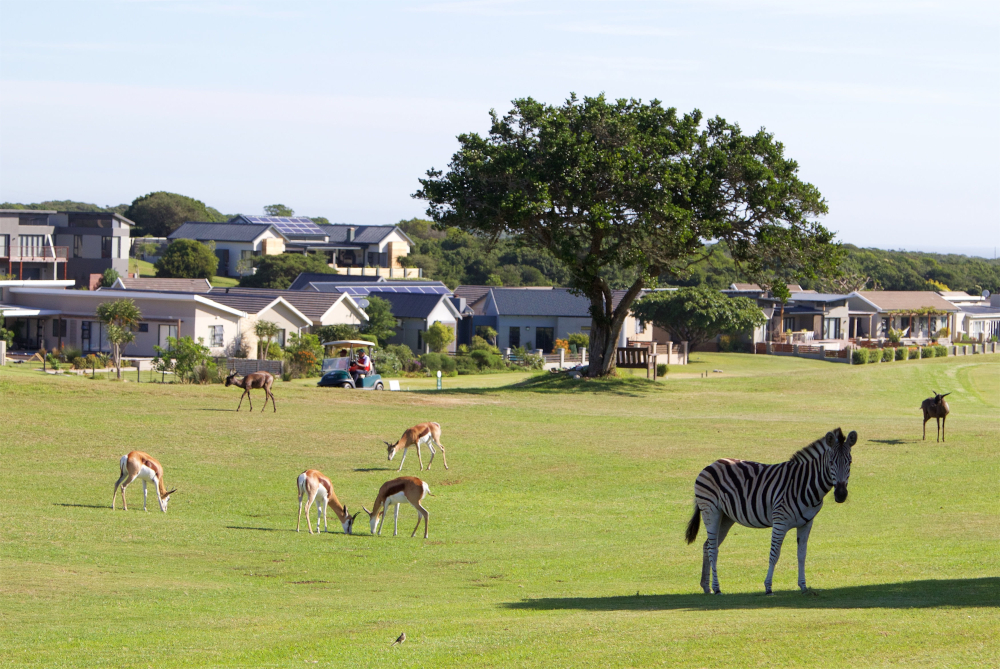Sardinia Bay Golf & Wildlife Estate has brought the management of game on the development in-house by purchasing the stock from the previous owner.
This has been revealed by Homeowners’ Association chairman Ian Hughes, who says they are much happier with the current situation.
“We believed it would be easier if we managed the game ourselves and so we purchased what we wanted and the rest was taken by the previous owner.”
He adds that it will fall on estate maintenance supervisor Hugh Wiblin, who has experience in the field, to care for the animals.
“It will be up to Hugh to resolve any problems and it will be much easier to control as he is onsite every day and able to monitor the situation.”
Wiblin says his approach to managing the animals is straightforward, with an emphasis on not getting involved unnecessarily in what he describes as a natural environment.
“I believe that the less you fiddle with them, the better for the wild animals. Once you start interfering when, for example, you see an animal limping, it can become an unnecessarily costly exercise.”

One of the points Wiblin makes is that it is better for residents to avoid interaction with the animals, especially in certain circumstances.
“Yes, the animals have become tamer on our estate because they are becoming used to humans, but when it comes to mating season you have to be a little bit cautious around the males.
“That’s when we send out a circular to all the residents to apprise them of the situation.”
On an estate of roughly 100 hectares, Hughes says they are “nowhere near capacity”.
“We have around 50 animals and in five years’ time, if we can grow them to around 70 or 80, we’ll be getting near the halfway mark.
He says they are happy with the current spread of species on the estate with the main objective being to grow the impala numbers.
“We have purchased a ram and have three females and would like to take that herd to 20.”
Their modus operandi will be to swap out with game farms if they find they have too many of a certain species.
“What we have done is to source a full analysis from an expert in these matters to understand what species we are allowed and how many of each species,” says Hughes.
“We will look to an exchange with other game farms if required, but you also have to be careful as you have to source game from this area.
“For example, you can’t get game from Grahamstown because it may not be resistant to the ticks in our region, or places like Tarkastad, which do not have any ticks.
“So that does make it a bit more costly, but it is something we will monitor as our herds develop.
“I can confirm, however, that the situation regarding our wildlife is much improved now that we have it under our control.”
